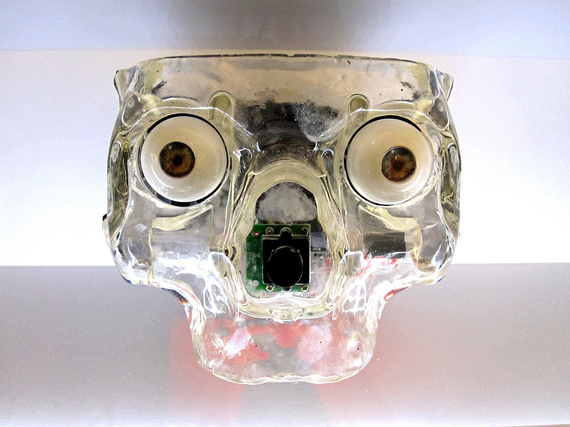Co-author: Hans IJzerman is a Professor of Clinical Psychology at the Free University of Amsterdam. He is the Founding President of the In-Mind Foundation, which disseminates psychological knowledge to a public audience. His research interests included grounded cognitive processes, emotion regulation and the social regulation of body temperature.
Just a decade ago, a telephone call was the primary means of contacting distant friends. Now, we are more likely to Facebook, tweet, Skype, Instagram or Snapchat a friend than to call her. By upending how we connect with friends, find romantic partners, choose restaurants and monitor our exercise, these social outlets feel modern, and sometimes even invasive.
But technologies just around the corner will make what we use now seem primitive and discreet by comparison. And these new, even more intimate technologies will force us to redefine relationships -- some for the better, and some for the worse.
Just how will our lives change? Imagine touching, hugging, holding hands, feeling the heartbeats or body heat of a distant loved one. Remember the French kiss simulator on the Big Bang Theory? That is imminent. And, of course, the potential for having sex with a sentient robotic partner, as recently reported by the New York Times and Huffington Post.

Image Credit: Justin Pickard/Flickr
In fact, research on the "uncanny valley" has shown that when computerized images become too human-like, they can seem repellent. The same may be true for devices that mimic physical contact.
For the upcoming technologies, predicting which will stick and which will go the way of Betamax is like predicting whether dropped toast will land butter-side up. But we might separate the Apple iPhones from the Apple Newtons by applying principles discovered in recent relationship science research.
Our research has shown that the most successful relationships provide us with two vital benefits. First is a sense of engagement -- that our partners are involved with us in an immediate, present and mutually interactive manner. Second is a sense of responsiveness -- that they fully understand who we are, value our abilities, beliefs, and accomplishments, and support us.
For example, one of us in our research has found that perceptions of how warm a person feels change according to how physically close we feel to others, probably based on whether we see those others as available "resources." Warming your body is expensive, and, like penguins, human bodies can reduce these costs through co-regulation of temperature. This is mediated in part by the production of the neuropeptide oxytocin, the hormone that regulates human pair-bonding and attachment. Our bodies, in other words, are made to connect with others who are physically present.
What about responsiveness? People express responsiveness in all sorts of ways -- a thoughtful gesture, through respect and admiration, or a willingness to put aside self-interest for a partner's wishes. In another study, we found that newlyweds are happiest when their interactions are high in responsive behaviors. And while receiving a partner's responsive acts improves well-being, being responsive produces an even larger gain. Like the regulation of bodily temperature, these are better accomplished face-to-face.
Can we make predictions based on these findings? We think we can. We predict that devices that attempt to reproduce physical interaction remotely are destined to fail. There is no substitute for being in the presences of another. Research tells us pretty clearly that hugging a mannequin or kissing silicone lips will never substitute for the warmth of a real human connection.
On the other hand, technologies that attempt to extend our other sense will thrive in the marketplace if they allow us to feel warmly connected to each other. Although Google Glass initially failed, it is an example of a tool that might do exactly this. If a loved one is climbing Mt. Kilimanjaro, I can see the same vista that she is seeing, and share in her exuberance. And that shared exuberance might well carry over to later interactions.
These innovations being readied for the marketplace will touch deeply upon the essence of our relationships, with the potential to alter our connections and our well-being. Their success will depend on whether they enhance the fundamental engagement and responsiveness that connect us to others. Sex, of course, is one of the most profoundly intimate and personal ways in which we engage with other persons. So rather than investing in technologies that try to mimic these connections, we might instead ask how, in this brave new world of technology, people can enhance the person-to-person, face-to-face interactions that have always made life more meaningful, enjoyable, and fully human.